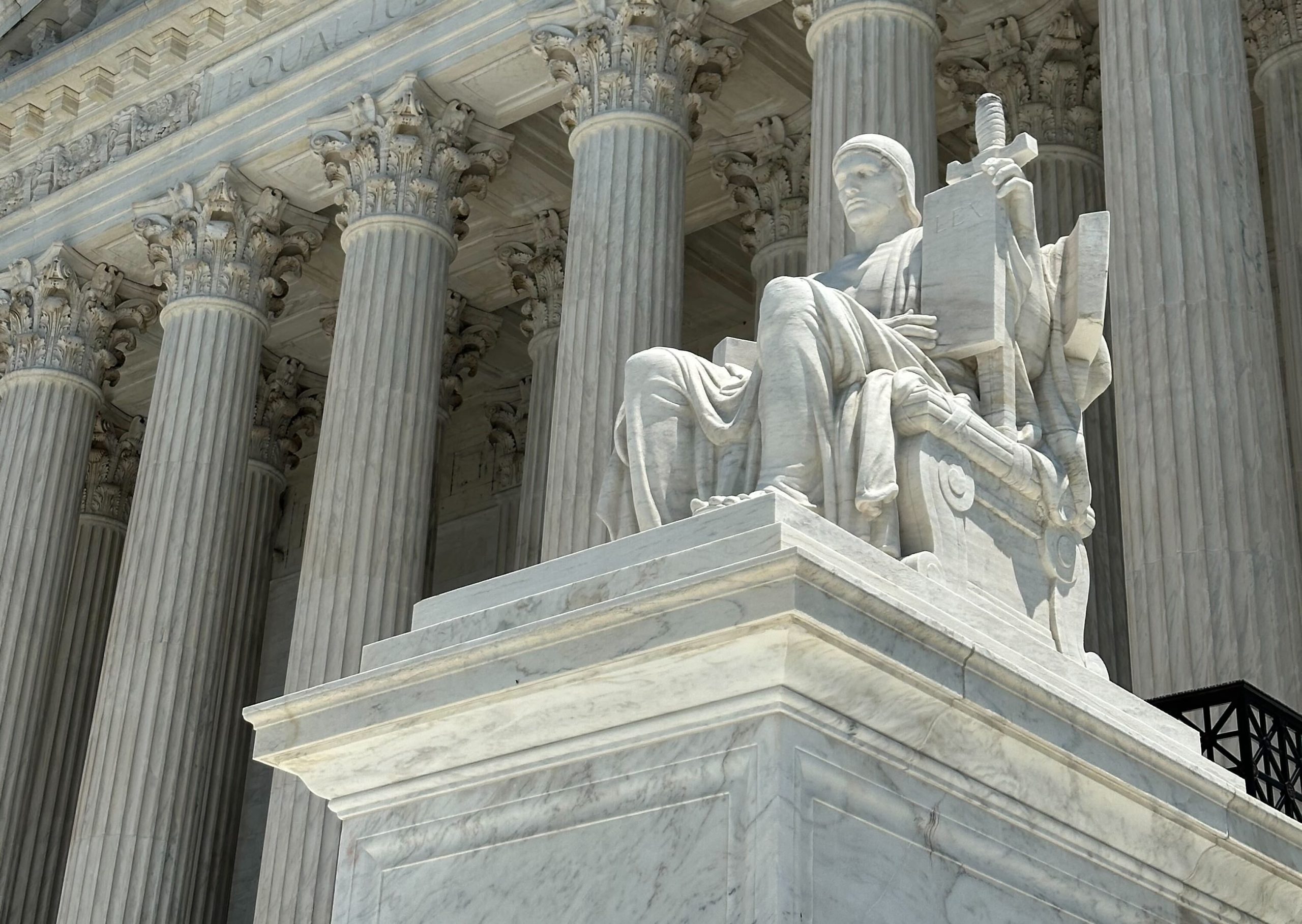Supreme Court takes up challenge to ban on gender-affirming care
SCOTUS NEWS
on Jun 24, 2024
at 10:03 am
The court on Monday agreed to hear United States v. Skrmetti in the fall. (Katie Barlow)
While the Supreme Court grapples this term with issues ranging from presidential immunity to abortion and the power of federal administrative agencies, the justices’ docket for the 2024-25 term has so far involved mostly lower-profile issues. That changed on Monday, when the justices waded once again into the culture wars – specifically, the debate over rights for transgender people. In a list of orders released on Tuesday morning, the justices agreed to take up a case challenging a Tennessee law that bans gender-affirming care for transgender youths.
The justices will hear arguments in the case in the fall, with a decision likely by late June or early July 2025.
Major U.S. medical groups such as the American Academy of Pediatrics and the American Medical Association have opposed efforts by states to restrict gender-affirming care. In a 2021 letter to the National Governors Association, for example, the American Medical Association cited studies indicating that gender-affirming care can lead to (among other things) “dramatic reductions in suicide attempts, as well as decreased rates of depression and anxiety.”
Tennessee enacted the law at the center of the case in 2023. It bars gender-affirming care, such as hormone treatments and gender-transition surgeries, for transgender patients under 18. The law carved out two exceptions from that general rule: It allows the use of hormone treatments for other patients under 18, such as those who begin puberty too early, and it allowed health-care providers to continue to administer hormone therapy to patients who were already receiving it until March 31, 2024. The legislation allows lawsuits against health-care providers who violate its restrictions, as well as the possibility that such providers could lose their licenses to practice medicine.
The challengers in the Tennessee case are a 16-year-old transgender girl, who has received puberty blockers and estrogen therapy, a 13-year-old transgender boy who has received puberty blockers, and a 16-year-old transgender boy who has received puberty blockers and testosterone therapy. The youths, along with their parents and a doctor who treats transgender patients, filed a lawsuit against Tennessee officials in federal court, seeking to bar the state from enforcing the ban on puberty blockers, hormone therapy, and gender-transition surgeries.
The Biden administration joined the case under a federal law that allows the government to intervene in private cases alleging violations of the right to equal protection under the law “if the Attorney General certifies that the case is of general public importance.”
U.S. District Judge Eli Richardson, who was appointed to the bench by former President Donald Trump, ruled that the challengers did not have a legal right to contest the ban on gender-transition surgeries because they had not indicated that they wanted to undergo such surgeries. But Richardson put the rest of the state’s ban on hold while litigation continued. He agreed with the challengers that “parents have a fundamental right to direct the medical care of their children, which naturally includes the right of parent to request certain medical treatments on behalf of their children.” And the ban violates the Constitution’s guarantee of equal treatment for people in similar situations, Richardson continued, because it prohibits medical procedures for transgender adolescents that it would allow for other adolescents.
Kentucky’s legislature enacted a similar ban in 2023, over a veto by Gov. Andy Beshear, a Democrat. Seven transgender teens and their parents went to court to challenge the Kentucky law, seeking an order that would prohibit the state from enforcing its bans on puberty blockers and hormone therapy. U.S. District Judge David Hale granted their request, although he put it on hold while the state appealed.
A divided panel of the U.S. Court of Appeals for the 6th Circuit reversed the trial judges’ rulings and reinstated both the Tennessee and Kentucky bans last fall. Chief Judge Jeffrey Sutton, a former clerk to Justice Antonin Scalia who in 2015 wrote an opinion upholding state bans on same-sex marriage, contended that because “it is difficult for anyone to be sure about predicting the long-term consequences of abandoning age limits of any sort for” gender-affirming care, the cases before the court were “precisely the kind of situation in which life-tenured judges construing a difficult-to-amend Constitution should be humble and careful about announcing new substantive” constitutional rights that “limit accountable elected officials from sorting out these medical, social, and policy challenges.”
The challengers in both cases went to the Supreme Court, asking the justices to take up the issue, as did the Biden administration, which had filed its own challenge to the Tennessee ban.
The Tennessee challengers told the justices that the “legal uncertainty” surrounding the availability of gender-affirming care for transgender youths “is creating chaos across the country for adolescents, families and doctors.” Both the federal government and the challengers in the Kentucky case echoed that sentiment, with the Kentucky plaintiffs noting that in recent years “twenty-one states have banned adolescents from obtaining medical care for gender dysphoria, throwing the lives of young people in these states into disarray.”
The challengers raised several different issues in their petitions for review. First, they noted, the courts of appeals are divided on the question at the center of both the Tennessee and Kentucky cases: whether (and, if so, how) states can ban gender-affirming care like puberty blockers and hormone therapy for transgender adolescents. (The ban on gender-affirming surgeries is not before the Supreme Court in this case.)
But the cases also present other questions that the court should resolve, the challengers continued, such as how courts should review state laws that single out transgender people for disfavored treatment, whether courts should subject such laws to a more stringent review, and whether the laws violate the fundamental rights of parents to make decisions about medical care for their children.
Emphasizing that the court of appeals was correct in allowing them to enforce the law, both states urged the justices to reject the challengers’ request “to remove an important and constantly evolving issue from the normal democratic process.” But in any event, they continued, there is no real division among the courts of appeals on the question posed by the two cases. And if there were, they added, the court should wait and consider these questions in a case with a more developed factual record – which, they suggested, could come along soon “given the volume of ongoing litigation about laws like” the Tennessee and Kentucky bans.
After considering the petitions for review at six consecutive conferences, the justices granted the Biden administration’s petition for review on Monday.
This article was originally published at Howe on the Court.






